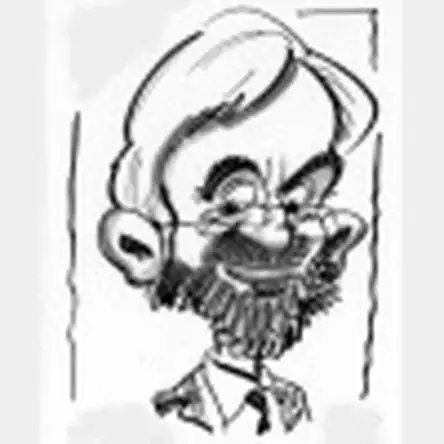I've been tinkering for as long as I remember, in fact I think I may have learned to read a simple circuit diagram before I learned to read English! Reading and writing seemed daunting at infants school when I was first encouraged to learn, but then I discovered there were books about electricity in the local library! By the end of a weekend I was making strides, and in only a few weeks I'd read all the electricity books the children's section of the library.
That was back in the 1950's. At the time, my father used to take family portraits using photoflood lamps. These were ordinary tungsten bulbs but over-run in order to give a more intense light at the cost of a much shorter life. He had a piece of wood with two switches and two sockets on it (I can still picture it) with which he could switch two photofloods in series for modelling at his leisure without burning them out, or in parallel for full brightness to take a photo. The circuit diagram was one of the first I ever understood.
Having shown an interest in electricity I was given a few batteries, bulbs, switches and bits of wire to play with, and although in the course of time I graduated to valves and transistors, and later to integrated circuits and computers, I've never really stopped tinkering. Taking things apart has always been a fascination for me.
After (naturally) opting for sciences at school I went to university and studied electronic engineering. But in one Summer vac job I was given a piece of stripboard with 20 tracks per inch (rather than the more usual 10) and a bunch of early (DTL) integrated circuits to try and build a hybrid analogue/digital computer display. But after spending many frustrating hours trying to locate shorts and broken tracks, I decided software was much better behaved and was what I wanted to do, at least for a living. I'd already had some experience programming an early computer (the Elliott 803) at a local technical college, which I'd greatly enjoyed. So after completing my electronics degree I took the Computer Science Diploma at the famous Mathematical Laboratory (formerly, home of EDSAC) at Cambridge.
The first half (or more) of my career I spent in software development. I've always enjoyed programming though I have to admit that I'm very far from being a superstar coder. I particularly enjoyed my time as lead developer for a minicomputer kernel, especially a project where I enhanced it for a dual processor operation. This involved some fascinating hardware development for a conflict resolution module.
I spent the latter part of my career working in cybersecurity, which again I found interesting, and although I'm now retired, I still try to keep abreast of developments. I like to help people stay safe online, and where the opportunity arises, to consider cybersecurity as a fascinating, challenging and very well worthwhile career choice. (There's no shortage of jobs if you're any good, and the money's good, too!)
Since retiring at the end of 2013 I've been able to spend much more time tinkering, and this has included mentoring kids at a local school computer club, and volunteering with The Restart Project. In the latter we help people with their dead electrical and electronic goods, repairing them where we can and advising them where we can't. This has allowed me to tinker with and take apart all manner of gadgets, to write a number of iFixit repair guides, to answer questions on the Forum, and to record much of what I know and have learned in the Restart Wiki.
